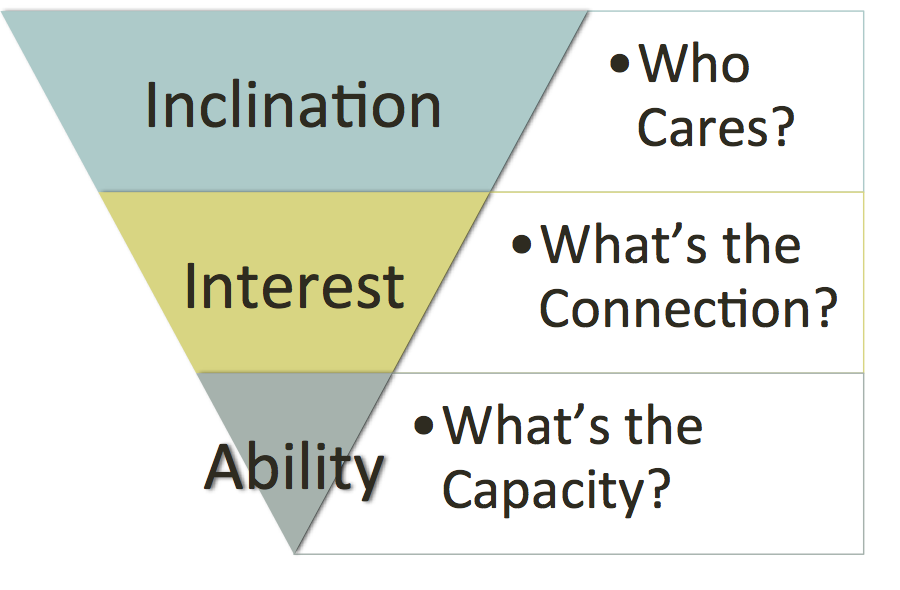Developing Donors
Lately, all my workshops are about donor development. It’s what much of my consulting focuses on also. How can we turn a prospect into a donor? But first, there needs to be clarity on what –or more accurately, who—is a prospect?
Prospects are people or organizations who have certain traits:
focuses on also. How can we turn a prospect into a donor? But first, there needs to be clarity on what –or more accurately, who—is a prospect?
Prospects are people or organizations who have certain traits:
- They have an ability to make a gift of a certain size. That size depends on what kind of a gift you are seeking. Prospects for your annual appeal, for example, need have less capacity than those you are approaching for endowment or any other major project.
- They have an interest in your organization or your cause. This is why you need to be aware of who gives to other, like organizations. Just because they gave a gift to a school and you are a school—or to a shelter and you are a shelter—doesn’t mean they will be interested in you. But at least there is a commonality that perhaps can help. Keeping track of who has been involved with you and in what ways is, of course, a far better indicator of interest. The more involved, the more likely a donor.
- They have an inclination to support you. These are typically the people who have had good experiences—either as a client (happy patient programs)—or as a volunteer, donor, attendee to an event. Again, you need to know what their relationship has been in order to understand how to cultivate them.
- Finally, and perhaps most importantly, you have to have access to this person. At one level, this simply means having a current address, but at the higher end, you must be able to get through to them and get them to agree to a meeting. This is where the idea of a “natural partner” comes in.
Natural partners are those people who can (and will!) open the door. It’s the board member who can set up a meeting (or, more likely, whose name and relationship will allow you to set up the meeting). It’s the person who can also tell you whether the best meeting would be in the prospect’s office, early morning for breakfast, or a fancy (or not so fancy) restaurant for lunch.
The natural partner can also help you to rate this prospect—identify where on the scale of how much they can and might give.
Fundraising really is a team sport. The bigger and more cohesive your team, the more you will win.
Winning, however, is not just in getting gifts. It is in getting supporters. As important as the money is, loyal donors—people who love you and love what you are doing—are far more important. A one-time big gift can be a tremendous boost, but frequent and dependable smaller gifts will allow you to do the work you do.
Janet Levine works with nonprofits, helping them to increase fundraising capacity. Learn how she could help you and your organization raise more money at http://janetlevineconsulting.com. While there, sign up for the free newsletter.
